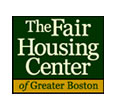1970s–Present: Impact of special permitting
on multi-family housing developments
In the 1940s-1950s, multifamily zoning in the greater Boston area was either allowed by-right or prohibited all together. In response to the passage of Chapter 40b, which allows developers to override zoning in municipalities where at least 10% of housing qualifies as affordable, many suburban towns started to allow multifamily zoning by special permit. By using the special permitting process, municipalities can enact stricter requirements for multifamily housing.
The Town of Northborough provides an excellent example of a difficult special permitting process. Northborough allows multifamily by special permit in their Apartment District but all of the units must be served by municipal sewer and water which covers only a small share of land, requiring an expansion of infrastructure, ultimately raising the construction costs. The developer must also complete a detailed site plan that accounts for the development’s impact on schools, utilities, tax revenue, environmental affects, and the “harmony with the character of the surrounding development.” Finally, because the Apartment District is not actually designated on the zoning map, the potential parcel has to be voted on for rezoning at a town meeting in order to obtain the special permit.

